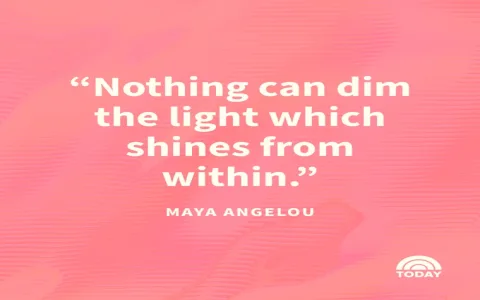So today I wanted to really get why Maya Angelou matters so much, you know? Like, everyone says she’s important, but how exactly did she shake things up in writing? I needed to see for myself.
First Steps: Just Grab the Books
Okay, step one felt obvious: read her stuff. I dug into “I Know Why the Caged Bird Sings” first. Man, right from the start? It hits you. Not holding anything back. Talking about trauma, racism, growing up Black and poor in the South – stuff you just didn’t see laid out so bare and so damn honest in mainstream books back then, or even now, sometimes. It wasn’t just the story, it was how she owned her voice.
Getting Annoyed and Getting Curious
Then I kept seeing her quotes everywhere. Like, seriously, on posters, in speeches, social media. “Still I rise”… yeah, powerful. But why does it stick? So I started paying closer attention to how she wrote.
- That rhythm! It felt like music, almost like church.
- Her poems weren’t just words on a page; they were meant to be shouted, chanted, felt in your bones. She pulled from gospel, blues, talking straight to the reader.
- The courage! Putting her whole life – the ugly, painful bits included – out there. That takes guts most people don’t have.
Trying (and Failing) to Do It Myself
Alright, thought I, maybe try writing something raw? Inspired by her? Yeah… that was harder than it looked. Attempted a short personal piece. Ended up sounding… whiny? Fake? Not sure. Deleted it after two paragraphs. It wasn’t just what she wrote; it was how deep she went and how unflinching she was.

The Big “Aha!” Moment
Kept reading, especially her essays and later autobiographies. That’s when it clicked. It wasn’t just autobiography. She did something radical: She made the personal story of a Black woman central, important, universal. She showed that her story mattered, wasn’t less than. And she did it with this incredible blend of toughness and tenderness.
Also noticed this: Her sentences have space. She doesn’t rush. Words land. You feel them. Like deliberate punches, or sometimes like a soft hug. She controlled the pace masterfully.
How She Changed My Thinking (About Writing)
So, putting it together? This woman basically tore down a wall.
- Honesty First: She proved writing thrives on brutal, beautiful honesty, especially from voices silenced before.
- Form? Break It: Who says memoir can’t sing? Who says poetry can’t be pure conversation? She mixed it all.
- Voice is Everything: Finding your unique voice, owning it completely, speaking your truth loud – that’s the core of it. Her voice wasn’t borrowed; it was hers, forged in fire.
- Resilience as Theme: Writing about pain isn’t just about the hurt; it’s about the getting back up. She embodied that.
Last Thought
Before this deep dive, I just thought she was a good poet. Now? I see she fundamentally changed the landscape. She made room for more truth, more diverse voices, more courage on the page. Her legacy? It’s in every writer today brave enough to tell their whole story, unashamed, with rhythm and power. Yeah, she definitely changed writing. Now I get it, loud and clear.




